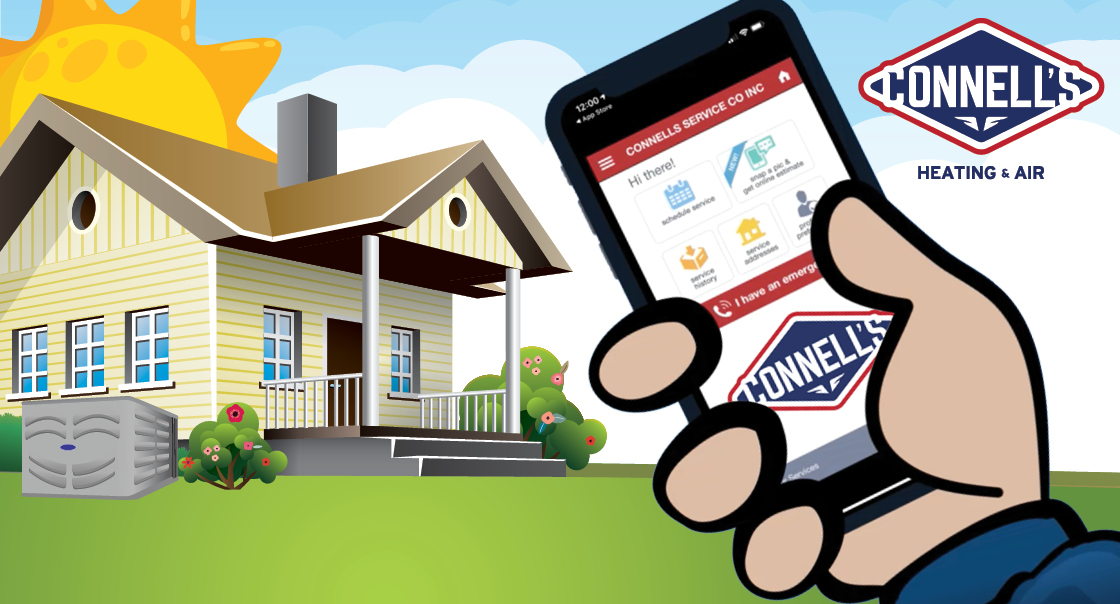Your heater is one of the most important appliances in your home. It keeps you warm through the chilly winter months, ensuring your year-round comfort.
However, most homeowners will need to replace their heater at some point. Even the best heaters last for around 30 years, but many fall short of that mark.
When the time comes to replace the heater, you’ll notice that there are plenty of options. Old technologies give way to newer heating methods, and you may be able to save money on utilities or replace your old heater with a more environmentally-friendly option.
Read on to learn about the different types of heating systems.
Furnace And Forced Air System
A furnace makes use of your home’s forced air induction system, also known as your ductwork. These are the most common type of residential heating systems in the U.S.
A furnace works by heating air and then forcing it throughout your home through your ducts. Most furnaces in the U.S. burn natural gas to heat the air, but electricity, oil, and propane can also be used.
The two main benefits of using a furnace to heat your home are that your air conditioning unit can use the same ducts to cool your home in the summertime and that furnaces are one of the most cost-effective ways to heat a home.
Additionally, you can outfit these systems to filter airborne allergens and dust, which is something you want to invest in due to the fact that air from furnaces can disturb allergies. They can also easily accommodate a humidifier or dehumidifier.
You should expect to get at least 15 years of use out of your furnace, but higher-end ones can last as long as 30.
Boilers And Radiant Heat
Boilers work on a similar process to furnaces, but they heat water instead of heating air.
First, the boiler senses a drop in your home’s ambient temperature. This causes it to activate and start heating the water inside of it. When the water reaches a sufficient temperature, it’s pumped throughout your home to radiators or floor systems. When the water cools, it’s routed back to the boiler to be reheated.
Like furnaces, boilers can run on electricity, propane, and oil, but natural gas is the most common power source.
Boilers can be incredibly energy-efficient but are typically more expensive to install than heaters. Also, having radiators around the home can limit your floor space.
On the other hand, the heat produced by these systems is quite comfortable, unlike the dry heat produced by furnaces, and you’ll never have to worry about air quality.
Boilers have a similar life expectancy as furnaces, lasting between 15-30 years.
Heat Pumps
Heat pumps are a common home heating system in areas where the winter temperature seldom dips below freezing. They can be used to both heat and cool your home.
Heat pumps don’t actually heat your air. Outside your home, the heat pump’s condenser takes in air and transfers it to coolant, which it compresses. This causes its temperature to rise.
Then, the coolant makes its way to the interior unit, called the wall cassette. The wall cassette blows air over the heated fluid using a fan. This air heats your home.
Heat pumps are one of the most energy-efficient heating solutions, but their use is limited to warmer climates.
A heat pump will serve you well for 10-15 years before needing to be replaced.
Geothermal Heat Systems
Geothermal heat systems use many of the same principles as heat pumps, but extract hot air from the ground or water rather than the air.
With a geothermal system, you’ll have a section of tubing below ground. Due to the fact that underground temperatures always hover around 60 degrees, this heats the solution in the tubing. It then makes its way to a heat pump which distributes the air.
These systems are very environmentally friendly since they don’t burn oil or gas and consume very little energy. This also means their operating costs are quite low.
However, installing such a system is much more costly than other means of heating.
The underground structure of a geothermal system can last up to 50 years, but you’ll have to replace the heat pump every 10-15 years.
Hybrid Heating Systems
If you live in a cold climate but want the energy efficiency provided by a heat pump, a hybrid heating system is a perfect choice for you.
With a hybrid heating system, you’ll get the benefits of both a furnace and a heat pump. For most of the year, your home relies on the heat pump, but, when temperatures drop too low for the heat pump to efficiently heat the home, the furnace activates.
These systems are energy efficient thanks to the use of the heat pump. As a bonus, you can even use the heat pump to cool your home in the summer, so you may not need to invest in an air conditioner.
Electric Resistance Systems
Electric heating systems make use of heaters installed in your baseboards or electric radiators to heat a room. They are powered solely by electricity. This makes them costly to run, so these kinds of heating systems are best used as supplemental heating in spare rooms or basements.
Baseboard heaters are the most common type of this kind of heating system. They’re easy to install and maintain, but provide a limited amount of heat.
Electric radiators are less common and more costly but provide a more directed heat. They’re usually installed near the ceiling of the room and the radiant heat from them warms the room’s occupants.
This kind of heating system lasts around 20 years on average.
Connell’s Installs And Repairs All Types Of Heating Systems
There are numerous types of heating systems, giving you plenty of options when it’s time to modernize your home’s heating solution. You’ll want to work with an HVAC professional to determine your home’s optimal heating system.
No matter what option you choose, you can count on Connell’s of Augusta, Georgia to install your residential heating system or diagnose your home heater problems. Reach out to them on their website to see how they can help you.



